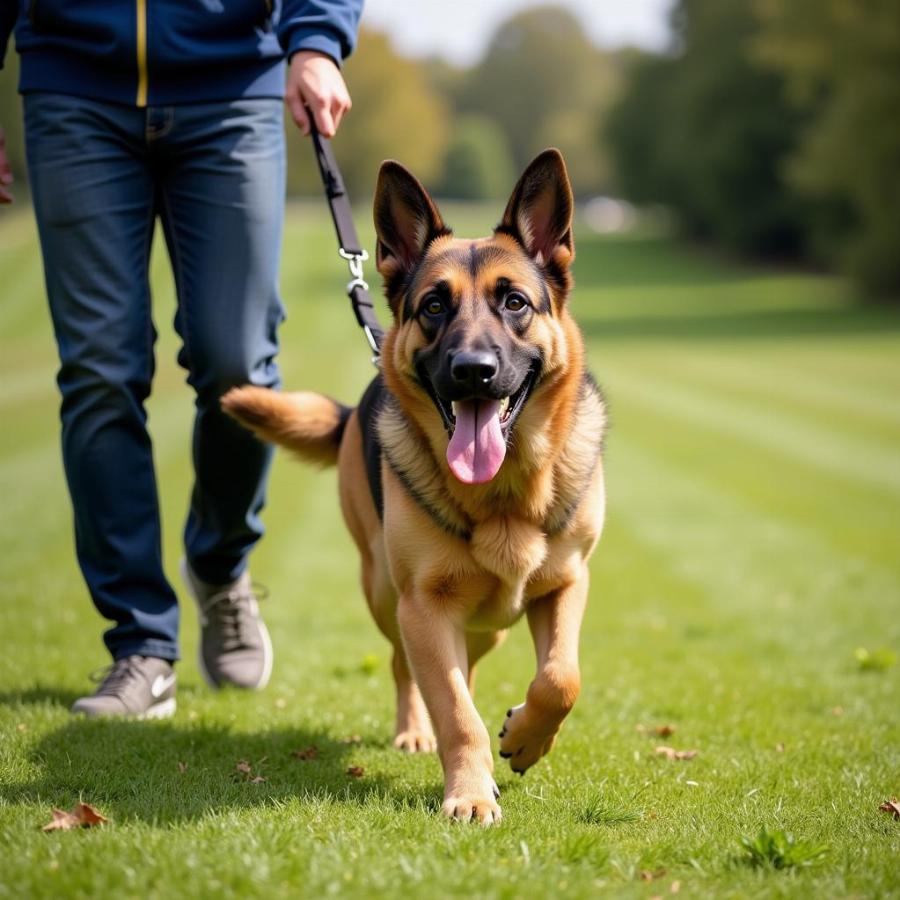“German for dog” translates to “Hund” in German. But did you know there are many other German words and phrases related to our canine companions? Whether you’re a German Shepherd enthusiast, fascinated by all things Deutsch, or simply curious about expanding your dog vocabulary, this article will delve into the world of “German for dog” and explore various related terms.
Beyond “Hund”: Exploring German Dog Lingo
While “Hund” serves as the general term for “dog”, the German language, much like its English counterpart, is rich with specific words and phrases describing various dog breeds, temperaments, and activities. Let’s explore some examples:
- “Der Schäferhund”: This translates directly to “Shepherd Dog” and is most commonly used to refer to the German Shepherd breed.
- “Der Dackel”: This word refers to the Dachshund breed, known for their short legs and long bodies.
- “Der Pudel”: “Pudel” is the German word for “Poodle”.
- “brav”: This translates to “well-behaved” and is used to describe a dog with good manners.
- “spielen”: Meaning “to play”, this verb is frequently used when talking about dog activities.
- “Gassi gehen”: This phrase translates to “go for a walk”, a crucial part of any dog’s routine.
 German Shepherd Dog Walking
German Shepherd Dog Walking
Why Learn German Dog Words?
Learning a bit of “German for dog” can be beneficial in numerous ways:
- Deeper Appreciation for Breeds: Many popular dog breeds, including the German Shepherd, Dachshund, and Poodle, originated in Germany. Understanding the original language used to describe these breeds can offer a richer understanding of their history, purpose, and characteristics.
- Effective Communication: If you own a German breed or frequently interact with German-speaking dog owners, knowing some basic German commands or phrases can be incredibly useful.
- Cognitive Enrichment for Your Dog: While dogs don’t inherently understand German, using a few German commands can be mentally stimulating for your furry friend. It can help differentiate those commands from everyday words and potentially enhance their learning experience.
Tips for Using German with Your Dog
- Start Simple: Begin with one or two basic commands, such as “Sitz” (sit) or “Platz” (down).
- Be Consistent: Use the German commands consistently alongside their English equivalents to avoid confusion for your dog.
- Positive Reinforcement: As with any training, reward your dog with treats, praise, or toys when they respond correctly to the German commands.
Expanding Your “German for Dog” Knowledge
There are numerous resources available to help you expand your “German for dog” vocabulary:
- Online Dictionaries: Several online dictionaries specialize in translating animal-related terms, including German dog words.
- Dog Training Books: Some dog training books include sections on using German commands.
- Language Learning Apps: Language learning apps often have specialized vocabulary sections, and some may include categories for animals or pets.
“German for Dog”: A Fun and Rewarding Pursuit
Learning even a few German words related to dogs can enrich your understanding of these beloved animals and enhance your communication with them. So, embrace your inner linguist and impress your friends with your newfound knowledge of “German for dog.”
Need help with your canine companion? Contact Beaut Dogs at [email protected] for expert advice and guidance on all things dog-related.
Beaut Dogs is your trusted source for comprehensive and insightful information on the wonderful world of dogs. We offer a wealth of knowledge on breed characteristics, care tips, training advice, and much more.